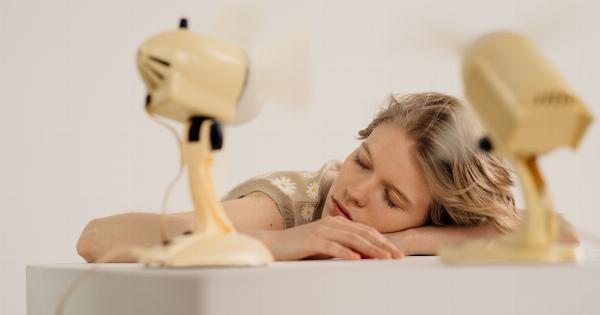Swimming is a great exercise that offers numerous health benefits such as improving cardiovascular health, building endurance and increasing flexibility.
While swimming is generally a safe activity, doing it every night may not be the best for your child, and here are 10 reasons why:.
Reason 1: Risk of drowning
According to the CDC, drowning is the leading cause of unintentional death in children aged 1-4 and the second leading cause of unintentional death in those aged 5-14.
Although swimming is a life-saving skill, it is crucial to supervise children when swimming, and doing it every night may increase the risk of an accident happening.
Reason 2: Skin irritation and dryness
Exposure to chlorine in swimming pools may cause skin irritation, dryness, and rashes to your child’s skin. Chlorine removes oils and moisture from the skin, leaving it dry and itchy. Doing it every night may make the situation worse.
Reason 3: Disrupt sleep patterns
Swimming can leave your child feeling energized, and they may find it hard to fall asleep after a late-night swim. Swimming every night may disrupt the sleep patterns of your child, leading to fatigue and irritability during the day.
Reason 4: Risk of infections
Spending long hours in a pool may increase the risk of ear infections, especially if your child does not dry their ears correctly.
Similarly, swimming may increase the risk of getting conjunctivitis, a highly contagious eye infection, especially if your child is using public pools. Swimming every night may increase the risk of getting infections.
Reason 5: Risk of injury
Although swimming is a low-impact activity, it is not entirely injury-proof. Swimmers may develop injuries such as swimmer’s shoulder or swimmer’s knee, which can become chronic if not treated early.
Overusing the same muscles every night may increase the risk of sustaining injuries.
Reason 6: Fatigue
Swimming is a strenuous activity that burns a lot of energy and calories. Doing it every night may leave your child feeling fatigued and drained of energy, especially if they are not eating enough to replenish their lost energy.
Reason 7: Reduced academic performance
Swimming every night may leave your child exhausted and unable to concentrate on academic work. Lack of concentration may lead to reduced academic performance, which may affect the child’s overall academic achievement.
Reason 8: Dependency on swimming
Swimming every night may create a dependency on the activity, leading to a situation where the child cannot sleep without swimming.
Such dependency may affect the child’s ability to engage in other activities or even create a phobia for water-related activities.
Reason 9: Increased financial burden
Swimming every night may lead to an increased financial burden on the family, especially if you have to pay for swimming sessions or private pool usage. The cost of swimming equipment such as swimsuits and goggles may also go up due to increased use.
Reason 10: Interference with family time
Swimming every night may interfere with family time, especially if the activity takes a long time or the pool is not in the home.
Family time is essential for building strong bonds and relationships, and swimming every night may create a situation where the child is estranged from the family members.
Conclusion
Swimming is a great activity that offers numerous health benefits. However, doing it every night may not be the best for your child’s health, safety, and overall wellbeing.
Parents should evaluate their child’s swim schedule and make necessary adjustments to ensure that swimming does not interfere with other crucial aspects of their lives.






























